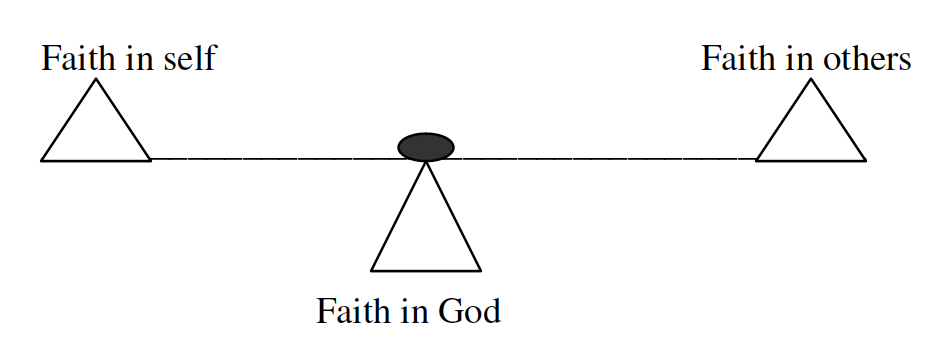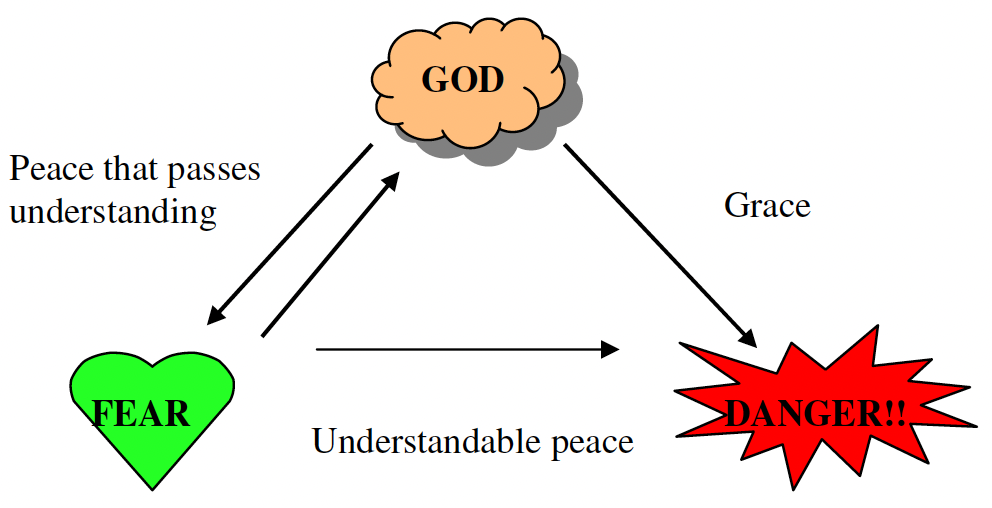Overcoming Anxiety
Anxiety is perhaps the most disabling emotion in our lives. It robs us of peace, joy, and fulfillment. In this seminar we discover that fear can work for us as well as against us. We learn four powerful principles to overcome fear and its crippling effects.
Find the PDF resources here for: Overcoming Anxiety
Part 1
Part 2
1. What is fear?
- It is not a sin.
- It is a profitable emotion
- It is our danger button
2. Response to fear

3. The ultimate fear: Death
- Physical death- fear of pain and material loss. Hebrews 2:15
- Soul death- fear of shame and embarrassment. Romans 8:15
- Spiritual death- fear of separation from God. Ephesians 2:1
4. Ways of coping with fear
- Avoidance
- Denial
- Suppression by various means
5. Ways of suppressing fear
- Covering fear by another emotion
- Anesthetizing with drugs, alcohol, or other addictive behaviours
- Controlling behaviours like Obsessive-compulsive behaviour, phobias, or worry
6. Four spiritual remedies to overcome fear
A. The knowledge of truth
- “You will know the truth and the truth will set you free.” John 8:32
- “He (the devil) is a liar and the father of lies.” John 8:44
Some lies of the devil:
- “The Lord helps those who help themselves.”
- “You are too stupid to go to college.”
- “You are the product of your chemicals.”
- “Forgiveness is forgetting.”
“He sent His word and healed them.” Psalm 107:20
“Great peace have those who love your law.” Psalm 119:165
B. The practice of faith and courage
- Faith is the ability to trust or depend.
- It is an act of the will, whether conscious or unconscious.
- Faith has an objective and subjective component.
- Developmentally, faith begins with dependence on others…parents.
- Society views emotional maturity as the transfer of faith from others to self.
- The Bible views the emotional maturing process as a transfer of faith from others and self to God first.

- Fear challenges us to go back to our surest faith.
- If self reliance is primary, we are often limited by:
- Our ability to understand
- Our ability to see
- Our ability to control
“Trust in the Lord with all your heart and lean not on your own understanding.” (Proverbs 3:5)
“When I am afraid, I will trust in You.” (Psalm 56:3)
“The Lord is my rock.” Psalm 18:2
- The amount of faith
- 1) Faith is a muscle. It requires exercise to become strong
- 2) The dangers and conflicts of life should be viewed as trials of faith
- How to get more faith (Matthew 7:7)
- 1) Pray for it
- 2) Seek for it. Seek and you shall find
- 3) Knock for it. Knock and the door will be opened
- How to seek for faith
- 1) Focus on the truth
- 2) Confess the truth
- 3) Act on the truth
What you really believe is what you confess and act on.

- Courage (boldness)
- 1) Faith is an act of the will and courage is the emotional counterpart
- 2) It gives peace that passes understanding
- 3) Ask the Lord for courage and peace as often as you feel the need
A diagram to demonstrate peace that passes understanding

C. The practice of respect
- Respect is a fear word. Re/ spect = look attentively
- Why? There is a danger to be avoided.
- Respect is a positive protective fear
- A little fear in the beginning saves you from a big fear at the end!

- Respect is the fearful avoidance of devaluating
- 1) The positive counterpart of respect is honour
- 2) Honour is the loving practice of valuing
- There are three ‘respects’ to be observed in a relationship
- 1) Respect of person. God values human life
- “He who mocks the poor shows contempt for their Maker.” (Proverbs 17:6)
- Devalue People = Devalue God = Danger
- 2) Respect for position (authority)
- God is the head of earthly authority
- “He who rebels against the authority is rebelling against what God has instituted.” Romans 13:2
- Disrespect authority – Disrespect God = Danger
- 3) Respect of performance. God has a standard for behaviour.
- “Woe to those who call evil good, and good evil.” Isaiah 5:20
- Disrespect God’s Standard =Disrespect God = Danger
- 1) Respect of person. God values human life
D. The practice of love
- Love is a commitment to give a blessing.
- Operating in fear leads to self protection.
- Operating in love leads to selfless giving.
- How to move from fear to love
- 1) Dedicate yourself (and your emotions) to love and serve God (Romans 12:1)
- 2) When afraid, choose to practice the love of God through worship.
- 3) Choose to love others for the sake of loving God







